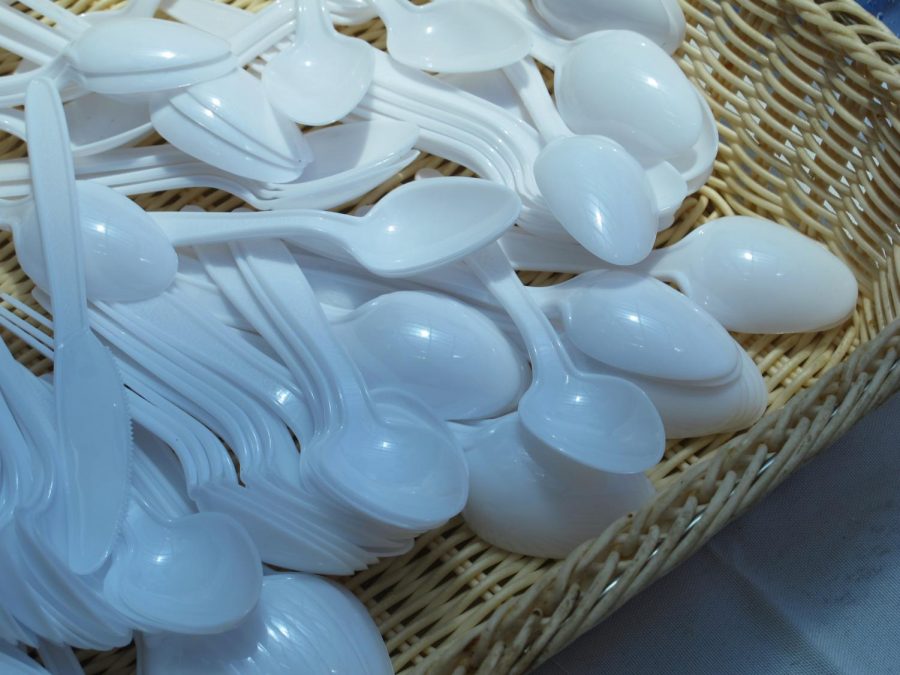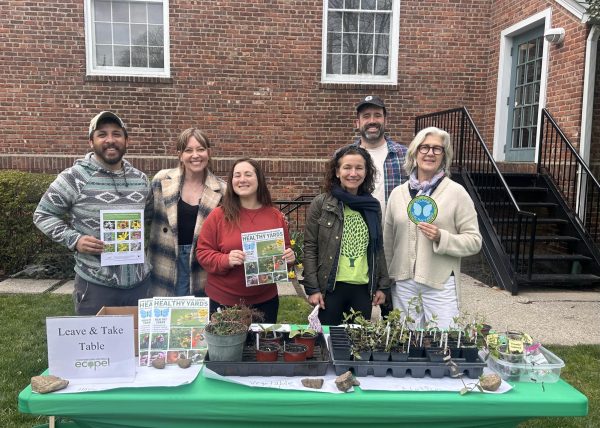PMS PTA works to eliminate disposable flatware
Like all single-use plastics, flatware—the plastic forks, spoons and knives that you use for your school lunch or a large gathering—is bad for the environment. According to numerous sources, it takes at least 200 years for plastic to decompose in a landfill.
Julie Fair and Beth Blanc, co-chairs of the hospitality committee for the Pelham Middle School PTA, serve over 300 teachers and staff each year during events such as Teacher Appreciation Week, Parent-Teacher Conferences and other occasions. Imagine the amount of plastic that goes into a landfill when serving that number of people. Those utensils will still be consuming valuable space on land and in oceans when the hundredth president of the United States is elected.
Fair is part of the Sustainable Huguenot group at Huguenot Church in Pelham and that led her to consider options for making the PTA eco-friendly. “The discussions with the PTA centered on being financially and environmentally responsible in similar ways to the discussions underway with Sustainable Huguenot,” Fair said.
To consider alternatives for compostable flatware, Fair and Ms. Blanc looked at many options to see which ones would be the cheapest and best for our environment. They selected products from World Centric, whose mission is “to provide sustainable products for a better world.” According to the company’s website, “In an economy that does produce waste, World Centric’s disposable foodservice products are designed to transform waste into healthy, new soil through composting.”
“Honestly, I couldn’t tell a difference,” said Mrs. Salman, a seventh grade social studies teacher. “That is such a great thing that it is helping the environment and it does not affect the quality of the meal. I am so happy that the PTA is being so environmentally friendly!”
The compostable plates and utensils are made in the U.S. out of renewable corn with all allergens removed to avoid allergic reactions to the products. According to World Centric, the products are derived from plant-based starches and feel similar to ordinary plastic. They are freezer safe and can handle hot food and drinks. A downside is that if you compost the products at home, it will take 12-24 months or longer compared to 3-6 months in a commercial facility. Additionally, the organization claims that compostable plastics can fully re-enter the cycle of life by becoming fertilizer for new plants.
Another downside Fair and Blanc discovered is that the price of compostable flatware is higher than the single-use plastic versions used by the PTA today. For example, each plate is an extra $0.32 and each utensil is an extra $0.16.
To make the costs feasible, the Middle School PTA stopped buying small plastic bottles of water several months ago, which freed up funds to be used for buying compostable flatware. This also supported the overall mission to eliminate the use of single-use plastics.
Pelham has many people in the community increasingly focused on sustainability through individual and collective efforts to reduce, reuse and recycle. At the same time, the New York PTA is encouraging all PTAs to be more environmentally friendly by using compostable flatware.
My name is Julia Kindig. I will be in seventh grade at Pelham Middle School. I love to read, write, sail, dance, do gymnastics and play the flute. I have...

















Beth Blanc • Jan 9, 2019 at 10:08 am
Great article Julia, you did a wonderful job!
Congrats!!!!!